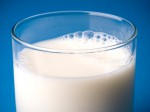 The power of food can change your life and Dietitians can help you unlock your potential through food.
The power of food can change your life and Dietitians can help you unlock your potential through food.
This is the theme of International Dietitians Day which is being celebrated on March 14th this year
Dietitians are aware that food is not just a bunch of nutrients. That food is about enjoyment of life, traditions, culture, love, sharing and coming together, having fun, celebrating, comforting , mental and spiritual wellness.
On many levels the power of food can be harnessed to improve health and enrich our lives. Here are just a few examples:
To fuel
Getting enough of the right sort of food to fuel our body’s at the right time is essential if we want our children to grow, develop and learn. Dietitians can help provide parents with practical tips to help fuel hungry, active, growing children that can also help the whole family get through a busy day.
Food can provide the fuel to not only grow but also replace bone and tissue, to strengthen all the systems in our body that keep us alive.
At different times of our lives our energy needs change.
Some times this may mean making meals more substantial, or spreading food evenly throughout the day to suit our appetite. E.g. children; pregnant women or the elderly may have a smaller capacity to meet their energy needs compared to constantly hungry and growing adolescents or athletes; or those in energy demanding jobs like construction, forestry or farming.
If you are an athlete or training to improve your level of fitness a Dietitian can show you how to match your intake with your goals. How to plan meals and snacks around your training and competition to ensure that your energy intake matches your needs for stamina and peak performance. 1
Different sporting codes can also require athletes to change their body composition. Dietitians can work with coaches, athletes and the medical team to ensure that athletes still get the fuel they need to compete safely.
To heal
Food has the power to strengthen our body, to build defenses and our immune system so that we can fight disease.
A Dietitian can help to assess your intake of key nutrients necessary to build a stronger, fitter body.
If your health is already compromised by non communicable diseases such as obesity, type 2 diabetes, arthritis, heart disease, alcoholism, osteoporosis, allergies and intolerances etc a Dietitian can help you find a pathway to better health.
These days media articles and advertising tend to dwell a lot on weight loss and special diets. While Dietitian’s can help people with weight loss if required, many Dietitian’s spend their time helping people to actually gain weight in order to manage the side effects of their illness and to prevent malnutrition. 2
This can be particularly important for those with mental health issues and eating disorders or for people undergoing surgery or cancer treatments, when maintaining nutritional well-being is crucial to a positive outcome.
To discover
Some foods are good sources of the key nutrients that help our brain to function. To enable us to think more clearly, to make decisions, to improve our numeracy scores; our discrimination and concept learning, to improve our memory and concentration and to make us feel happy and motivated. 3,4,5
By harnessing this knowledge dietitians can work with parents to assess and improve their children’s nutritional well-being This will not only have health benefits (even for the whole family) but can also improve the academic outcomes of their children.
Teaching children how to grow fruit and vegetables; how to weigh and measure food; to shop and prepare simple meals and snacks not only teaches children to appreciate the value of food in their lives but can also enrich things they may be learning at school already such as maths, physics, biology, sustainability of resources and creative pursuits.
To come together
Eating together can be a real challenge when families are busy or have sport or work commitments at night.
Sharing meals has been found to increase the intake of fruit and vegetables particularly in teenage children, resulting in better control of body weight and improved health and fitness.6
Communal eating also allows people to interact with family and friends, it strengthens family traditions, culture and relationships and encourages people to communicate and listen to one another.7
These practices have the effect of reducing feelings of social isolation and can help to build better mental health.8
Dietitians can help families to get the most out of their food budget, to plan meals well, to reduce food waste and to shop wisely.
Are you using food to unlock your full potential?
There is no one way. No standard diet that fits all. Our food needs change throughout life. Yet the food choices we make can impact on the amount of effort it takes to get through a busy day, a busy lifetime.
A registered Dietitian can help you to unlock your potential with food. So talk to Lea online or visit Dietitians NZ website https://dietitians.org.nz to find a Dietitian near you
Would you like to support us?
If you would like more information about how you can support Dietitians on their special day visit: https://dietitians.org.nz/public-info
Acknowledgements
We join with Dietitians NZ in acknowledging the great work Dietitians of Canada has done in developing the themes and messages for Dietitians Day 2018, and we are grateful for their permission to use these themes in New Zealand.
For more information on related articles by Lea visit:
Could you make healthier decisions when you shop?
8 Healthy tips when making ‘real food’ choices
Does your diet tick all the boxes?
Who’s cooking tonight?
Wise up to discretionary foods
Don’t let disordered eating ruin your performance.
References
- Burke, L. Deakin,V. Clinical Sports Nutrition. The McGraw Hill Book Co Aust, 2000 2nd
- Baker L, Gont B,Crowe T Hospital malnutrition : Prevalence, identification and impact on patients and the health care system. Intern J Environ Res Public Health 2011 8 (2):5154-527.
- Beard,J 2003. Iron deficiency alters brain development and functioning. J. Nut 133: 1468S- 1472S.
- D, Nabb.S 2003. carbohydrate, memory and mood. Nutrition reviews; May;61,5;Health Module S61-67.
- Burrows,T. Goldman,S. Olson, RH, Byrne, B. Coventry,WL. Association between selected dietary behaviours and academic performance
- Utter, J. Denny, S. Dyson, B. School gardens and adolescent nutrition and BMI: Results from a national, multilevel study . Prev Med. 2016 Feb;83:1-4.
- Locker J, Robinson C, Roth D. Ritchie C, Burgio K. The effect of the presence of others on caloric intake in homebound older adults. J Gerontology A. Biol Sci Med Sc 2005 Nov 60(11) 1475-1478.
- Yiengprugsawan, V. Banwell,C. Takeda, W. Dixon,C, Seubsman,S. Sleigh,AC. Health, happiness and eating together. What can a large Thai cohort study tell us? Global J.of Health Sci. 2015 Jul 7 (4): 270-2































































Leave a Reply